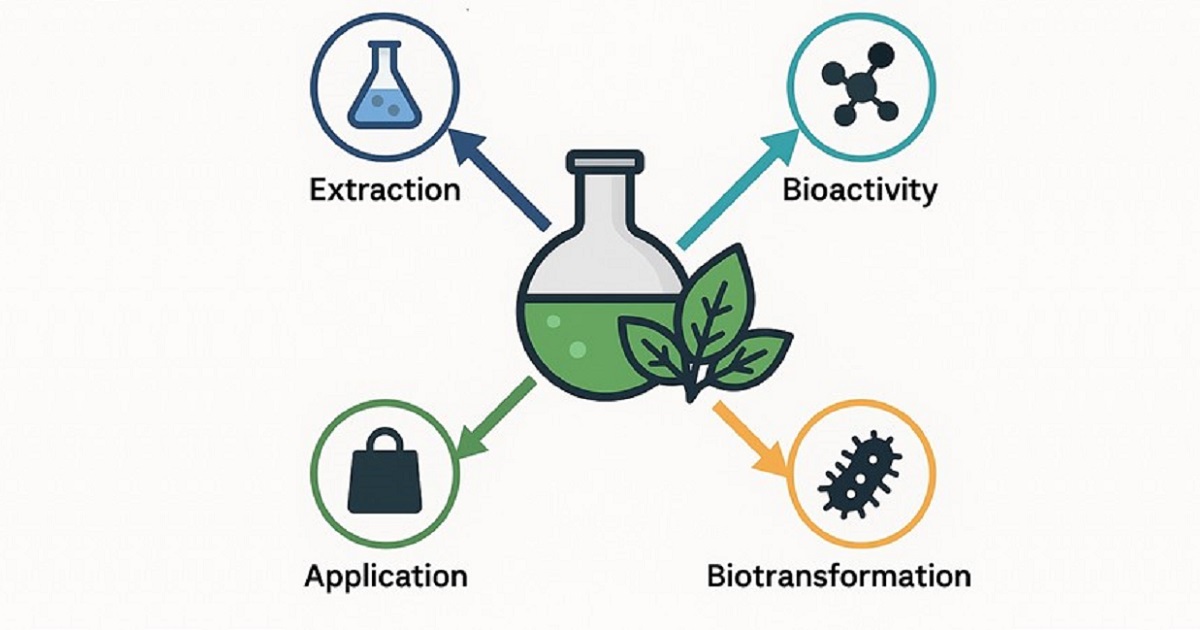Advances in Natural Products: Extraction, Bioactivity, Biotransformation, and Applications
A special issue of Applied Sciences (ISSN 2076-3417). This special issue belongs to the section "Food Science and Technology".
Deadline for manuscript submissions: 20 May 2026 | Viewed by 5419

Special Issue Editors
Interests: food science and technology; food processing; food chemistry; food processing and engineering
Interests: food science and technology; food processing; food chemistry; food processing and engineering; biotechnology
Interests: nutrition and health; functional foods; bioactive compounds; bioactivity and bioavailability; phytochemicals and chronic diseases
Special Issues, Collections and Topics in MDPI journals
Special Issue Information
Dear Colleagues,
Natural products, derived from a wide variety of biological sources including higher plants, algae, and microorganisms, have gained significant attention due to their structural diversity and promising bioactivities. These compounds play a crucial role in the development of novel pharmaceuticals, nutraceuticals, cosmetics, and functional foods.
This Special Issue aims to highlight the latest advancements in the extraction, characterization, and valorization of natural products from medicinal and aromatic plants, edible and non-edible herbs, underutilized or discarded plant biomass, seaweeds, microalgae and microorganisms. We welcome original research and review articles that explore innovative and green extraction technologies, comprehensive phytochemical profiling, and structure–activity relationships.
Additionally, special attention will be given to studies investigating the biological activities (e.g., antioxidant, antimicrobial, anti-inflammatory, cytotoxic, neuroprotective) of natural products, as well as those exploring biotransformation approaches to enhance their functionality, bioavailability, or stability. Manuscripts addressing the application of natural products in food, pharmaceutical, cosmetic, or agricultural formulations are also highly encouraged.
Topics of interest include, but are not limited to, the following:
- Innovative extraction methods (e.g., ultrasound-assisted, supercritical fluid, deep eutectic solvents).
- Identification and quantification of bioactive compounds.
- Bioactivity screening and mechanistic insights.
- Biotechnological and enzymatic biotransformations.
- Functional formulation and product development.
We look forward to your valuable contributions to this Special Issue, which aims to highlight the growing potential of natural products in science and industry.
Dr. Ena Cegledi
Dr. Ana Dobrinčić
Dr. Antonios E. Koutelidakis
Guest Editors
Manuscript Submission Information
Manuscripts should be submitted online at www.mdpi.com by registering and logging in to this website. Once you are registered, click here to go to the submission form. Manuscripts can be submitted until the deadline. All submissions that pass pre-check are peer-reviewed. Accepted papers will be published continuously in the journal (as soon as accepted) and will be listed together on the special issue website. Research articles, review articles as well as short communications are invited. For planned papers, a title and short abstract (about 250 words) can be sent to the Editorial Office for assessment.
Submitted manuscripts should not have been published previously, nor be under consideration for publication elsewhere (except conference proceedings papers). All manuscripts are thoroughly refereed through a single-blind peer-review process. A guide for authors and other relevant information for submission of manuscripts is available on the Instructions for Authors page. Applied Sciences is an international peer-reviewed open access semimonthly journal published by MDPI.
Please visit the Instructions for Authors page before submitting a manuscript. The Article Processing Charge (APC) for publication in this open access journal is 2400 CHF (Swiss Francs). Submitted papers should be well formatted and use good English. Authors may use MDPI's English editing service prior to publication or during author revisions.
Keywords
- plant extracts
- algae extracs
- microorganisms
- underutilized biomass
- bioactive compounds
- green extraction
- biotransformation
- phytochemical profiling
- functional food
Benefits of Publishing in a Special Issue
- Ease of navigation: Grouping papers by topic helps scholars navigate broad scope journals more efficiently.
- Greater discoverability: Special Issues support the reach and impact of scientific research. Articles in Special Issues are more discoverable and cited more frequently.
- Expansion of research network: Special Issues facilitate connections among authors, fostering scientific collaborations.
- External promotion: Articles in Special Issues are often promoted through the journal's social media, increasing their visibility.
- Reprint: MDPI Books provides the opportunity to republish successful Special Issues in book format, both online and in print.
Further information on MDPI's Special Issue policies can be found here.







